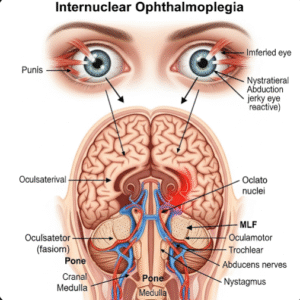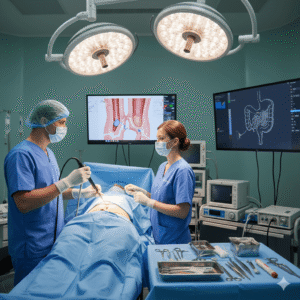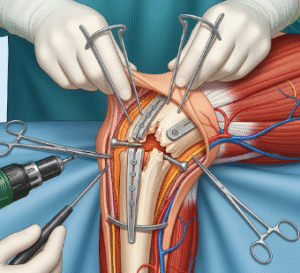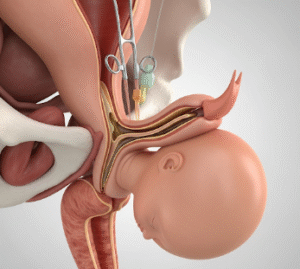Overview
Thyroid nodules are abnormal growths or lumps within the thyroid gland, a butterfly-shaped organ located at the base of the neck. While most nodules are benign, some can be malignant or cause thyroid dysfunction. These growths may be discovered during routine physical exams, imaging tests, or when they produce noticeable symptoms. South Korea is recognized for its advanced diagnostic and treatment capabilities for thyroid nodules, combining state-of-the-art imaging technologies with minimally invasive procedures and highly skilled surgical care. This allows patients to receive accurate diagnoses and effective treatments while minimizing risks and recovery time.
What is Thyroid Nodules?
Thyroid nodules are discrete lesions within the thyroid gland that differ from the surrounding tissue. They can vary in size, number, and composition. Most nodules are benign, such as colloid nodules or cysts, but a small percentage may be malignant, including papillary or follicular thyroid cancer. Nodules can be solid, fluid-filled (cystic), or mixed in composition.
Nodules can also affect thyroid function:
- Functioning (“hot”) nodules: Overproduce thyroid hormones, potentially causing hyperthyroidism.
- Non-functioning (“cold”) nodules: Do not produce hormones and are often benign, but may require biopsy to rule out cancer.
Early detection and monitoring are critical, as most thyroid nodules are asymptomatic and can remain unnoticed for years.
Symptoms
Most thyroid nodules do not produce symptoms and are discovered incidentally during routine exams. However, some nodules may cause:
- A visible lump or swelling in the neck
- Pain or tenderness in the thyroid area
- Difficulty swallowing or breathing if the nodule presses on the esophagus or trachea
- Hoarseness or voice changes due to pressure on vocal cords
- Hyperthyroid symptoms (if the nodule is overactive), such as unexplained weight loss, rapid heartbeat, sweating, and anxiety
Symptoms vary depending on the size, location, and activity of the nodule. Larger nodules or those affecting neighboring structures are more likely to produce noticeable signs.
Causes
Thyroid nodules develop due to a variety of factors, including:
- Iodine deficiency: Can lead to the formation of nodules or goiter.
- Genetic mutations: Certain gene changes can contribute to benign or malignant nodule formation.
- Thyroid cysts: Fluid-filled sacs may develop into nodules.
- Inflammation or thyroiditis: Chronic inflammation can cause tissue changes leading to nodules.
- Overactive thyroid tissue: Hyperfunctioning nodules result from abnormal growth of hormone-producing cells.
- Radiation exposure: Past radiation to the head, neck, or chest can increase the risk of developing nodules.
Understanding the cause helps doctors determine the risk of malignancy and the most appropriate treatment strategy.
Risk Factors
Several factors increase the likelihood of developing thyroid nodules:
- Female gender (women are more likely to develop nodules)
- Age over 50
- Family history of thyroid disease or thyroid cancer
- Iodine deficiency or excess in the diet
- History of autoimmune thyroid disorders, such as Hashimoto’s thyroiditis
- Prior exposure to radiation, particularly during childhood
Complications
While many thyroid nodules are benign, complications can arise if nodules are left untreated:
- Thyroid cancer: Malignant nodules require timely diagnosis and treatment to prevent spread.
- Compression symptoms: Large nodules can press on the trachea or esophagus, causing breathing or swallowing difficulties.
- Hyperthyroidism: Overactive nodules may lead to excessive thyroid hormone production, causing metabolic imbalances.
- Cosmetic concerns: Visible swelling in the neck can affect appearance and self-esteem.
Monitoring and intervention are essential to prevent these complications.
Prevention
Although not all thyroid nodules can be prevented, certain measures can reduce risk:
- Ensure adequate dietary iodine, neither too low nor excessive.
- Regular thyroid check-ups, especially for individuals with a family history or prior thyroid issues.
- Avoid unnecessary radiation exposure to the head and neck.
- Maintain a healthy lifestyle and manage autoimmune conditions proactively.
- Early evaluation of any neck swelling or unusual symptoms for prompt diagnosis.
Treatment Options in Korea
South Korea offers comprehensive and advanced treatment options for thyroid nodules, tailored to the size, type, and risk of malignancy.
Diagnosis:
- Physical examination: Palpation of the thyroid gland to detect nodules.
- Ultrasound imaging: High-resolution ultrasound identifies nodule size, composition, and suspicious features.
- Fine-needle aspiration (FNA) biopsy: Minimally invasive procedure to determine if a nodule is benign or malignant.
- Blood tests: Assess thyroid function and detect hormone abnormalities.
- CT or MRI: Occasionally used for larger or complicated nodules affecting surrounding structures.
Medical Treatments:
- Observation and monitoring: Small, benign nodules often require only periodic imaging and hormone testing.
- Thyroid hormone therapy: Sometimes used to suppress growth in certain benign nodules.
Surgical or Advanced Therapies:
- Lobectomy or thyroidectomy: Removal of part or all of the thyroid gland if nodules are malignant or causing compression.
- Minimally invasive surgery: Endoscopic or robotic-assisted procedures reduce scarring and recovery time.
- Radiofrequency ablation (RFA): Non-surgical technique for shrinking benign nodules without full thyroid removal.
- Laser or ethanol ablation: Alternative minimally invasive methods for selected nodules.
Rehabilitation and Support:
- Regular follow-up with imaging and hormone tests to monitor recurrence or growth.
- Hormone replacement therapy if thyroid tissue is removed or impaired.
- Nutritional guidance to maintain iodine balance and overall thyroid health.
- Psychological support for patients with cosmetic or functional concerns.
South Korea’s multidisciplinary approach integrates endocrinology, radiology, and minimally invasive surgery to provide safe, effective, and patient-centered care for thyroid nodules.













